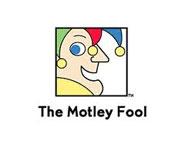Faculty News
—
Prof. William Silber's book, "When Washington Shut Down Wall Street," is highlighted
—

Excerpt from Barron's -- "With the outbreak of World War I at the end of July 1914, Treasury Secretary William G. McAdoo ordered the New York Stock Exchange closed in order to prevent massive liquidation of U.S. stocks by British investors seeking to raise cash. (At the time, the Treasury Secretary was the de facto central banker; although legislation to create the Federal Reserve had been passed the previous year, it was not yet up and running.) The U.S. then was operating under the gold standard, so the proceeds of sales of American assets could be readily converted to gold, which could flee the country. (This account comes from When Washington Shut Down Wall Street, a 2006 book by William L. Silber, an economics professor at New York University and—full disclosure—a professor of mine in grad school.)"
Faculty News
—

Excerpt from Barron's -- "With the outbreak of World War I at the end of July 1914, Treasury Secretary William G. McAdoo ordered the New York Stock Exchange closed in order to prevent massive liquidation of U.S. stocks by British investors seeking to raise cash. (At the time, the Treasury Secretary was the de facto central banker; although legislation to create the Federal Reserve had been passed the previous year, it was not yet up and running.) The U.S. then was operating under the gold standard, so the proceeds of sales of American assets could be readily converted to gold, which could flee the country. (This account comes from When Washington Shut Down Wall Street, a 2006 book by William L. Silber, an economics professor at New York University and—full disclosure—a professor of mine in grad school.)"

















